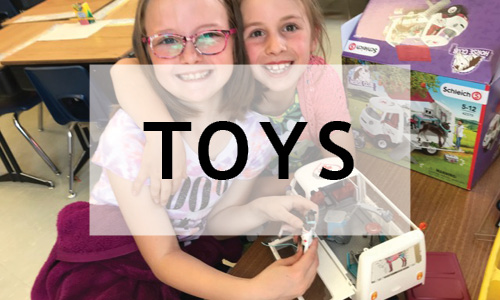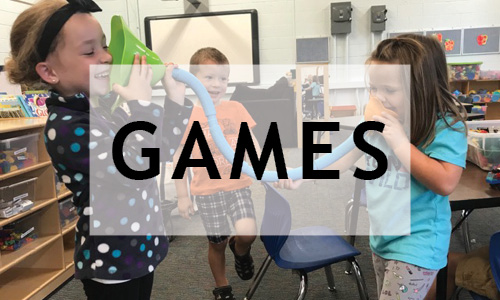 I enjoy finding SLP’s who are working and learning “outside the box,” applying their speech-language skills to important related areas of learning, to better the lives of our clients. I’d like to introduce you to Rochel Lieberman, a Speech Language Pathologist and PhD student in Communication Sciences and Disorders, with her field of interest in social emotional literacy and stress in language development. She is publishing her first children’s book, regarding social emotional literacy skills in children, “Pearla and Her Unpredictably Perfect Day,” a delightful story about a clever little girl who uses strategies to overcome perfectionism, solve a problem and see the the fun outcomes possible in her imperfect world! Here is Rochel’s guest post:
I enjoy finding SLP’s who are working and learning “outside the box,” applying their speech-language skills to important related areas of learning, to better the lives of our clients. I’d like to introduce you to Rochel Lieberman, a Speech Language Pathologist and PhD student in Communication Sciences and Disorders, with her field of interest in social emotional literacy and stress in language development. She is publishing her first children’s book, regarding social emotional literacy skills in children, “Pearla and Her Unpredictably Perfect Day,” a delightful story about a clever little girl who uses strategies to overcome perfectionism, solve a problem and see the the fun outcomes possible in her imperfect world! Here is Rochel’s guest post:
I was inspired by my work as a Speech-Language Pathologist to write Pearla and her Unpredictably Perfect Day.
While providing services to a wide range of children and adults over the years, I discovered that many of us find it difficult to deal with all of the little imperfections that are part of everyday life. As adults, we may experience some typical mishaps: the dress that you planned to wear had previously unnoticed stains resulting in wardrobe panic, or the kids’ babysitter cancelled last minute causing you to be late for an important doctor’s meeting, or your client cancelled her appointment just as you reschedule your day. Learning to accept these impossible-to-avoid changes is an important part of our development and can prepare us for challenges that have far greater implications. The main character in my book, Pearla, was born from this realization and from the realization that someone with healthy social emotional literacy, SEL, can conquer these daily mishaps and challenges and come out on top.
When children battle with perfectionism and anxiety, an individual with healthy, developed SEL can intervene and guide the children toward optimal resolutions.
Take the following typical scenario of Perfection and Anxiety butting heads. Anxiety continuously repeats lines such as, “You must not relax until you know for certain that things will work out”, or “No resting until you have 100% certainty that the fearful event that you worry about will not take place”, or “Don’t stop until that hopeful event that you insist must happen, occurs”. Perfection rolls his eyes and folds his arms across his chest. “Measure up, get to perfect or else you won’t get that feeling of certainty”, he says, and, “If you hadn’t made mistakes in the past, you would have more certainty around your upcoming event”, “Next time you must go the extra mile, why didn’t you?” He mutters under his breath, “Why didn’t you plan each piece accurately?”
Someone with SEL has the ability to identify, label, understand, and respond to thoughts or emotions like the quotes above, in a healthy, positive manner. This leads a person to engage in healthy social behaviors. Therefore, when an adult with healthy SEL hears this conversation between Perfection and Anxiety, she can easily highlight some buzzwords. “You cannot relax until you know for sure that things will work out”, “there is no rest until you have 100% certainty that the fearful event that you worry about will not happen”, and “don’t stop until that hopeful events that you insist must happen, will happen”, all things that anxiety would say. Perfection said, “Measure up, get to perfect or else you won’t get that feeling of certainty”, “You should’ve never messed up, then you would’ve known that your certain event would’ve happened”, “Next time you must go through the extra step, I mean how did you not?” and lowers his eyes to say “Why didn’t you plan each piece so perfectly?”
Recognizing words like ‘cannot’, ‘for sure’, ‘will not’, ‘would’ve not’, and ‘must’, identifying their meanings, and being able to understand what they represent, can help you respond in a positive and healthy way to stress, negative self-talk, and uncomfortable events.
In Pearla and her Unpredictably Perfect Day, Pearla is excited that she can bake in her father’s bakery. It is a huge responsibility and she anticipates the preparation and the presentation of her baked goods with great effort. She is aware of what is at stake; she has accumulated fans who show vested interest in her success. I mean, she has people driving over from the other side of the river – on a Sunday – just to sample her goodies! You know those perfect people from the other side of the river, grass, building, city, who come for this 10-year-old? Preparing for them takes tremendous work and organization – as well as the pendulum swing between Anxiety and Perfection. Perfection lays out the good-luck bowls and uses strong hands to whip her baked goods into masterpieces. There is nothing simple about this activity. Sure, the work is tiring, but Anxiety keeps the argument strong and consistent, leaving no room for mishap.
When mistakes do happen and events that Pearla could not have planned for do indeed occur, Pearla enters into a “Blllllega Blllllega” phase, the phase introduced in Pearla and Her Unpredictably Perfect Day that initially renders Pearla helpless, causing her to make sounds with her mouth, to pace back and forth, and to not think logically. Fortunately, through the intervention tools of SEL, Pearla is able to emerge from her paralyzing fear and she is able to problem solve.
Her solutions, her healthy labeling of emotions, and her reframing techniques will be covered in my future blog posts. Please follow my posts via my website ariberspeech.com and on Facebook @ariberspeech, I endeavor to leave you with a one-second take away that can be embedded into practice.



